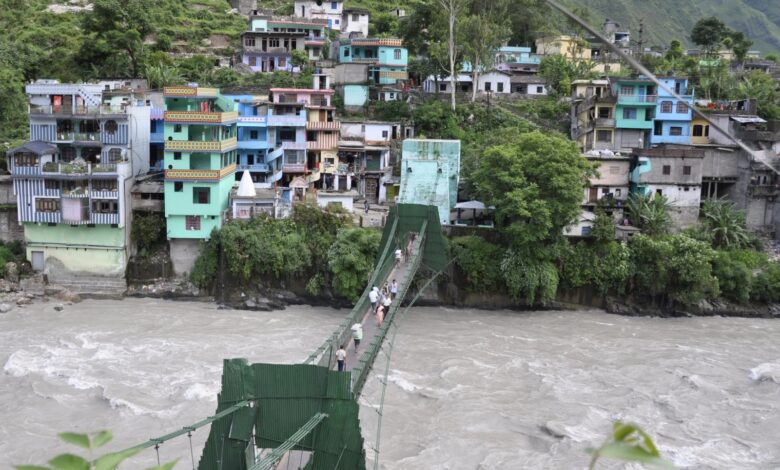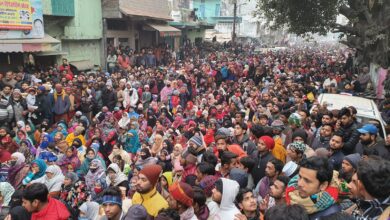Nine bridges to Nepal to be closed for elections

Nine bridges to Nepal to be closed for elections
B.D.Kasniyal
Pithoragarh, April 15
All nine bridges on river Kali at Indo-Nepal border in Pithoragarh district, which form the border between the two countries will be closed for next three days, from 6 pm on April 16 and will be opened at evening hours on April 19, after the polling ends in Almora parliamentary seat, said Reena Joshi, District Election Officer. The polling in Almora parliamentary constituency is scheduled to be held on April 19 as the first phase of seven phase general elections of India.
“The border bridges, closed once for three days would not even be opened even for emergencies,” said Reena Joshi, District Magistrate, Pithoragarh who is also District Election Officer .
There are nine border bridge on river Kali along 185 km long border with Nepal in Pithoragarh. ” These bridges included Sita Pul at high altitude region of Garbiyang, Garbadhar bridge, Tin Tola, bridge, Ailagar bridge, Dharchula, Baluakot, Jauljibi, Dwalisera and Jhoolaghat bridges,” said the DM.
The Indian markets at Dharchula, Jauljibi and Jhoolaghat are bound to remain paralysed for next three days as over 90 percents clients to these markets come from Nepal.
“Besides closing these bridges, the Sahastra Seema Bal (SSB), the para-military force which is deployed on Indo-Nepal border along with regular police is keeping a strong vigil on illegal routes generally used by smugglers.” We are being fully cooperated by Nepal Armed police personals in guarding the border from their side, in order to help Indian authorities conduct peacefull election,” said T.Sering Dorji, a SSB official of 55th battalion, based at Jhoolaghat.






